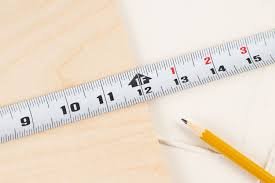
Why Is Measurement Uncertainty Important?
sumanj
- 0
Quantitative measurements are performed each day. The accuracy of these measurements is determinate upon an established set of requirements. One organization may require low accuracy measurements while another may require high accuracy. Despite the established requirements, no measurement is exact. No matter how careful or accurate, every measurement result contains an independent amount of uncertainty. Therefore, if measurement is important, then measurement uncertainty is equally important. According to the National Institute of Standards and Technology, no measurement is complete without an accompanied statement of the associated amount of uncertainty. Creating awareness for the importance of measurement uncertainty is the key to ensuring that industries worldwide focus on the importance of measurement quality and the consequences resultant from the exclusion of measurement uncertainty.
Uncertainty in measurement results is the probable amount error or doubt associated with an individual measurement, or a set of measurements, as a result of both systematic and random variances. Uncertainty is not equivalent to error, but the two are related. Errors lead to poor quality, bad decisions, and costly failures. Measurement uncertainty is an expression of estimated measurement quality. Awareness that measurement uncertainty is an important aspect of quality and risk should be recognized worldwide.
Quality and cost are directly impacted by measurement uncertainty. Many industries including research, manufacturing, finance, and healthcare rely on reports that contain quantitative data from measurement results. Product quality, experiment results, financial decisions, and medical diagnosis can all be directly impacted by errors introduced from the omission of measurement uncertainty. Without awareness or consideration of the impact measurement uncertainty has on quality, the greater the probability of increased operating costs and failure rates. How much would it cost a manufacture to issue a recall due to product failure or experience downtime as a result of a system failure? How many lawsuits are filed each year as a result of medical malpractice and misdiagnosis? How would the economy be impacted if an industry crashed as result of poor quality financial reporting? More importantly, how does this affect consumers? Poor quality and bad decisions increase costs, which are directly passed on to investors and consumers. If quality were to improve, costs could be reduced and organizations could become more efficient and more profitable.
Measurement uncertainty is critical to risk assessment and decision making. Organizations make decisions every day based on reports containing quantitative measurement data. If measurement results are not accurate, then decision risks increase. Selecting the wrong suppliers, could result in poor product quality. Selecting the wrong laboratory, could result in medical misdiagnosis. Selecting the wrong investments, could impact financial goals. All of these cases are examples of how measurement results impact decisions. If the ability to assess the quality of the measurement results were present, organizations and individuals could make decisions more confidently.


